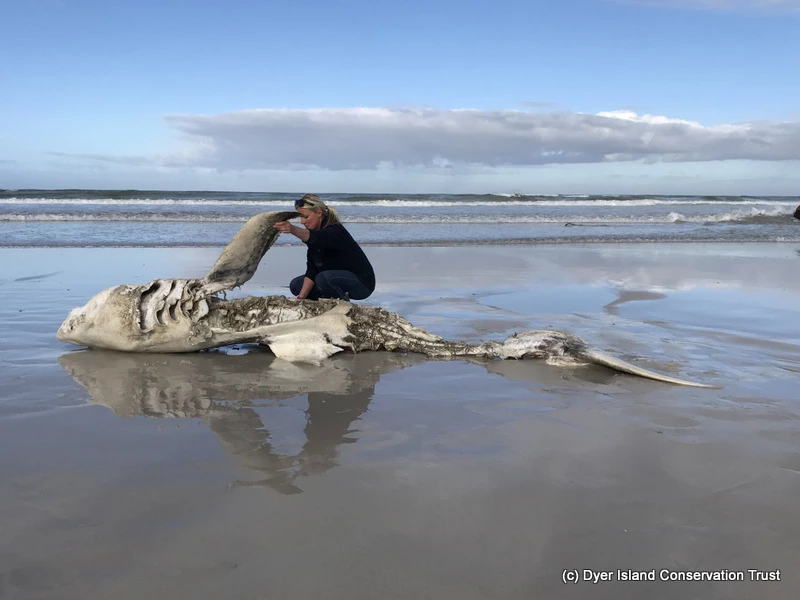Back in July, we heard how orcas were hunting great white sharks in South Africa, scaring the fish away from certain regions. While scientists were basing their findings on examinations of shark carcasses, they've now gained new insights by analyzing aerial video of a hunt in action.
Researchers from South Africa's Dyer Island Conservation Trust had previously published the results of a five-and-a-half-year study conducted along South Africa's Gansbaai coast, during which time 14 tagged great white sharks were tracked fleeing areas where orcas were present. Great white sightings in those areas also dropped significantly.
Additionally, a total of eight dead great whites were found washed up on the shore, bearing distinctive bite wounds that were matched to just two local male orcas named Port and Starboard. In seven of the carcasses, the orcas has eaten the highly nutritious liver, and sometimes also the heart.
Now, the scientists have reported on their assessment of helicopter and drone footage of orcas actually attacking great whites in the region. While a clip of the drone video was released in June, it showed just part of what was an hour-long hunt of several sharks, pursued by a pod of five orcas.
Although one of those orcas was identified as Starboard (he has a uniquely shaped dorsal fin), the other four weren't previously known to hunt great whites. According to the scientists, this may indicate that the predation behavior is spreading within the local orca community. If it spreads even farther, it could have a significant effect on shark populations.
It was additionally observed that when individual orcas initially approached great whites on two occasions, the sharks proceeded to slowly circle the orcas, staying close and keeping them constantly in view. Perhaps ironically, it's a defense strategy that's also often used by sea turtles and seals when approached by sharks. And while it may work when hunted by just a single predator, the fact that the orcas were hunting in a pack likely rendered it ineffective.
Backing up previous observations – which suggest that sharks tend to leave areas where such events have occurred – it was found that while great whites were spotted in the area every day for weeks prior to the recorded hunt, only one was spotted in the 45 days afterwards.
A paper on the study, which was led by Alison Towner, was recently published in the journal Ecology.
Highlights of the video can be seen below.





